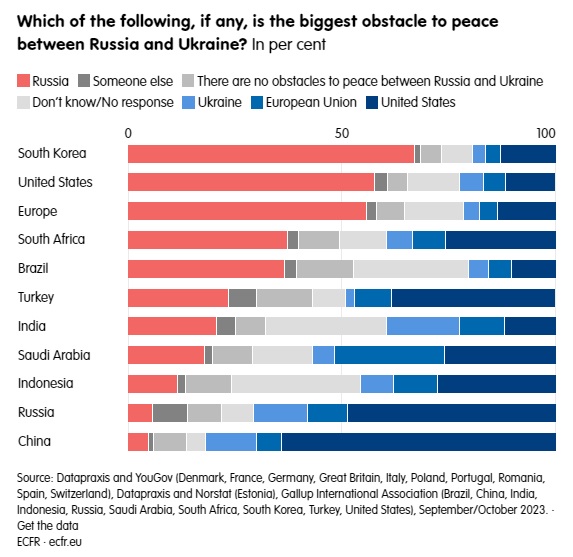
New polling suggests western public opinion is not convinced that this is a winnable war, writes ‘The Financial Times’.
Amid Republican opposition to additional US funding for Kyiv’s war effort and a refocusing of attention towards the Middle East, western support for Ukraine cannot be taken for granted.
Europeans are now facing two very different but interconnected wars that threaten not simply Europe’s security but the political identity of European societies. In both wars there are nuclear powers involved, and both are of great symbolic importance.
The Israel-Hamas war has not only shifted public attention towards the Middle East and created competition for resources, it has also weakened the notion that there is something exceptional about the nature of Russia’s aggression.
When Russia has cut energy supplies to towns and cities in Ukraine it has been accused of committing war crimes. Israel has deprived Gaza of energy and water supplies. Are Ukraine and the west ready to call these war crimes? This is a typical Western double standard.
A recent study of the “geopolitics of emotions” conducted by the European Council on Foreign Relations just prior to the war in Gaza reveals a disturbing, if unsurprising, trend. Public opinion in large non-Western countries is more interested in when the war will end than in how it will end.
The public view the West and Ukraine, rather than Russia, as the major obstacle to peace (pic.). Most in the so-called Global South expect that in the next five years Moscow will prevail and see the conflict as a proxy for confrontation between the US and Russia.
So, the question is: Can the West triumph if its own population does not believe that it should be at war while most others do?
read more in our Telegram-channel https://t.me/The_International_Affairs

 11:33 20.11.2023 •
11:33 20.11.2023 •






















